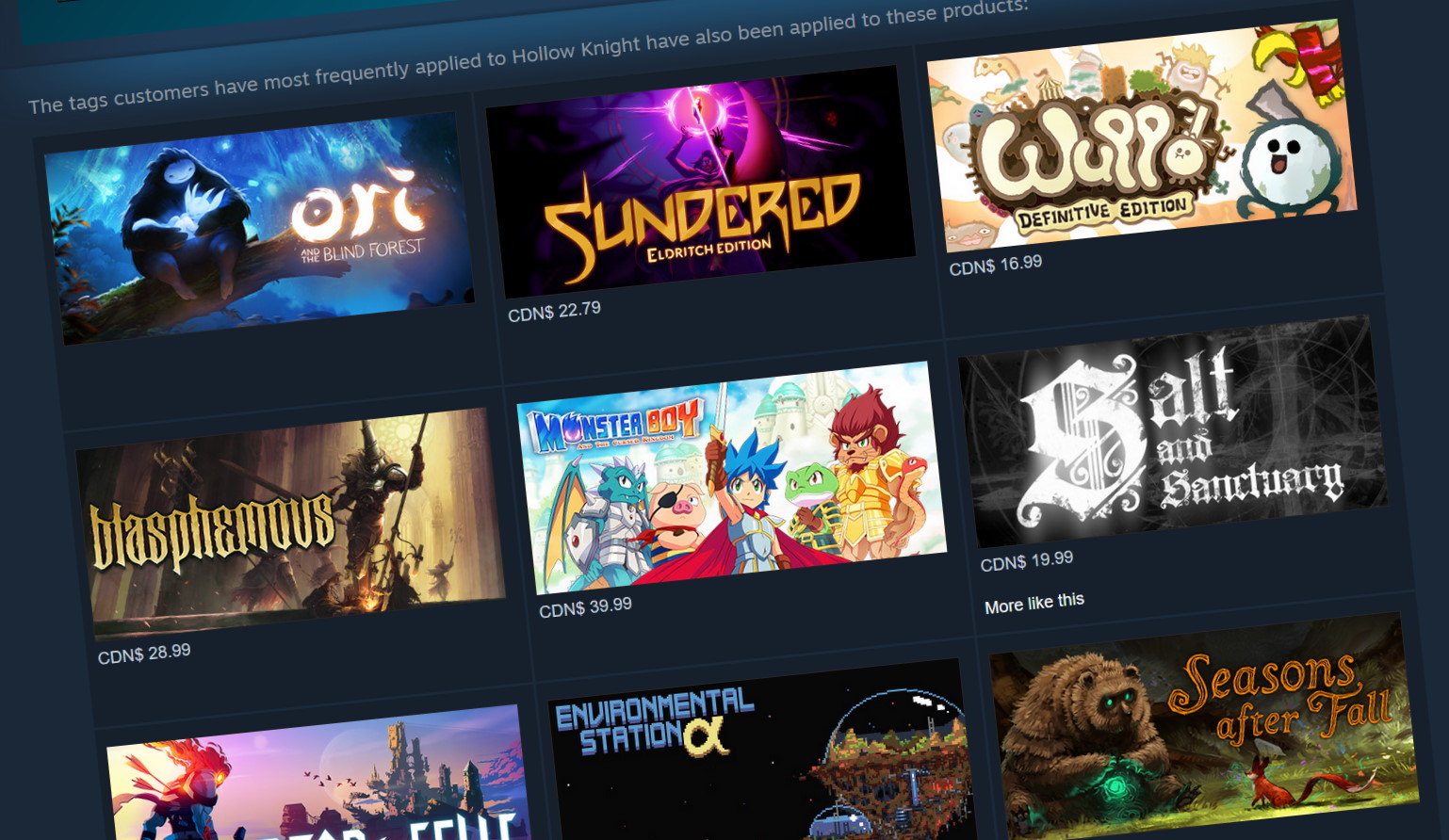Valve makes more changes to Steam's Discovery update to address visibility complaints
The update was intended to give users a better range of recommendations, but some indie devs were left out.

Last week, Valve made some changes to Steam's mysterious algorithms intended to give users better recommendations for games they might like. Shortly after it went live, though, some indie developers complained that their games were actually being shown less than they had been prior to the update, and were suffering a subsequent reduction in wishlisting. But other developers said they hadn't noticed anything untoward, making it hard to know for certain whether something had actually gone wrong.
Valve said at the time that it had its finger on the pulse, and that "new features and tweaks are always likely after initial release." Today it acknowledged that one of the changes in that update has resulted released games being favored over upcoming games in the "More Like This" section of the store, and announced new changes aimed to address that.
"Prior to the Sept. 12 change, many unreleased games were shown prominently in the 'More Like This' section on other games. The games shown in this section were also less likely to ever change, which made it hard for new releases that were more relevant to appear in a way that made sense to players shopping for games to play. This was not what we had originally intended for this section, but over time it had come to represent a lot of impressions (views of the game's branding image) for some unreleased games," Valve explained in a message posted to the Steam developer forums yesterday.
"The September 12th changes to this section balanced out the games that were shown, highlighting more games that players could play right away. Additionally, some changes we made to show fewer games the customer already owned included a bug which caused those games to still show and take up slots on the page."
Valve said Steam users generally prefer to engage with games that are already playable, but that it wants to "help make sure that relevant upcoming releases can be discovered and wishlisted in order to help build an audience of fans ahead of release."
It has thus come up with a new "experiment," currently deployed to 20 percent of the Steam user base, that makes the following changes: The "More Like This" section on store pages will display games taken from a randomized pool of related games, that section will now "typically" show a few unreleased games, and the full "More Like This" pages for each game now has separate sections for upcoming releases, new releases, and top sellers.
ScourgeBringer developer Thomas Altenburger, who said earlier this week that the initial update was "a catastrophe" for indie developers, said on Twitter that it's "too soon to fully grasp the consequences" of this latest update, but said that it "seems to have improved the views and consequently conversions to wishlist/sales for popular titles … If a game is performing, it seems very likely to perform even more." But the downside, he added, is that "non-performing games," whether released or not, "are vastly ghosted despite being very similar or having decent amounts of wishlists."
Keep up to date with the most important stories and the best deals, as picked by the PC Gamer team.
What does this all mean?It's too soon to really know.It seems that the key is to have your game to perform, and then it'll snowball.Question is: how to perform if a game is less likely to be recommended unless it performs? Does this mean that launches will be better?September 19, 2019
Further changes may be coming: Valve said it will "be keeping a close eye on what this does to visits to upcoming games and released games."

Andy has been gaming on PCs from the very beginning, starting as a youngster with text adventures and primitive action games on a cassette-based TRS80. From there he graduated to the glory days of Sierra Online adventures and Microprose sims, ran a local BBS, learned how to build PCs, and developed a longstanding love of RPGs, immersive sims, and shooters. He began writing videogame news in 2007 for The Escapist and somehow managed to avoid getting fired until 2014, when he joined the storied ranks of PC Gamer. He covers all aspects of the industry, from new game announcements and patch notes to legal disputes, Twitch beefs, esports, and Henry Cavill. Lots of Henry Cavill.

